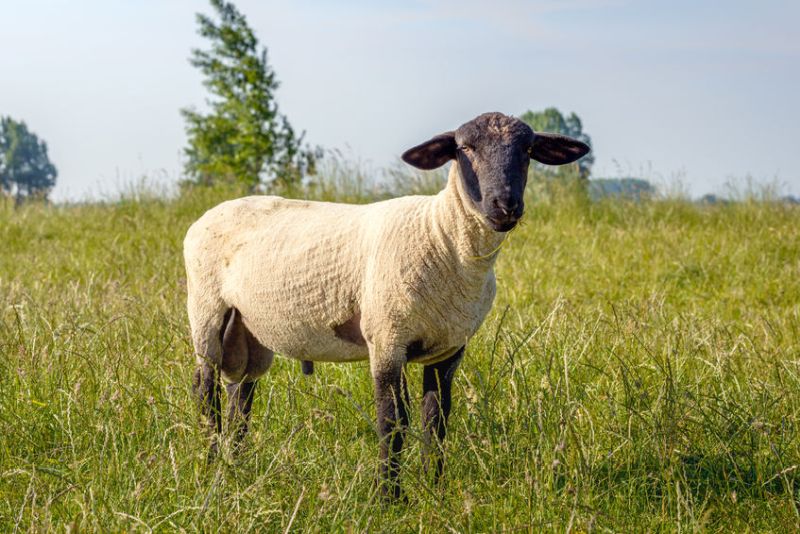Livestock rustlers steal 71 lambs from Devon farm

Thieves have stolen 71 lambs from a Devon farm just weeks after the release of figures which show rural crime is at an eight year high.
Livestock were stolen from a farm in the Bratton Clovelly area of Devon at some point between 5 and 12 August.
The lambs are said to be the Suffolk cross mule breed and have red spray marks on the left hand side of their neck or ear.
Anyone with information are urged to contact Devon and Cornwall Police or Crimestoppers UK quoting the crime reference CR/068266/20.
The force added: "Don’t let stolen meat enter the market or food chain. Help protect rural livelihoods."
It follows the release of figures which show that rural crime costs have reached an eight year high in the UK - totalling £54m in 2019.
NFU Mutual's report shows that livestock theft increased last year, with the cost going up 9% to £3 million.
Gangs taking large numbers of sheep, which are thought to enter the food chain illegally, are driving the increase.
How can I better protect livestock?
To deter livestock thieves, NFU Mutual advises farmers to:
• Padlock field gates
• Ensure stock is clearly marked and records are up to date
• When possible graze livestock in fields away from roads
• Check stock regularly - and vary times of feeding/check ups
• Consider a high-tech marking system such as TecTracer which puts thousands of coded microdot markers into a sheep’s fleece
• Ask neighbours to report any sightings of unusual vehicles loading sheep
• Join a FarmWatch scheme
The rural insurer has established that there are three distinct types of livestock thefts currently taking place:
• Large scale theft – organised crime with livestock destined for the food chain
• Pedigree – rams stolen for their high value as breeding stock
• Money laundering – organised criminal gangs buying and selling on sheep at auctions to launder money








